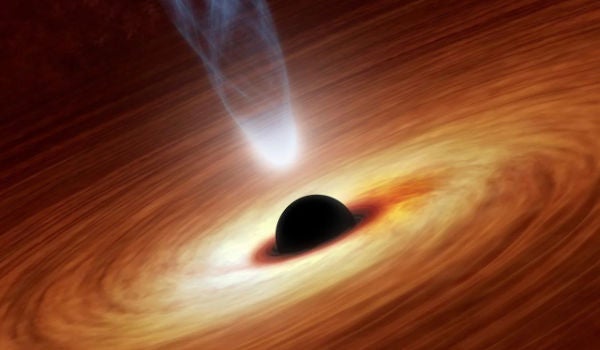Physics is a field that knows no limits. It encompasses the study of everything we know about the world around and beyond us, from the largest galaxies to the smallest subatomic particles. Many of our world’s most pressing and complex problems—from health crises to sustainable energy solutions—are being solved by professionals with a background in physics.
In the department of physics at URI, we want to know more about how the universe works—and we never stop asking questions. Our students cultivate inventive thinking and analytical and problem-solving skills that provide a strong basis for a variety of careers, from medicine to finance to astronomy. We invite you to join our community of scientists, and discover your own questions.
Why Physics at URI?
| Major Options | Advance Your Study | Go Quantum |
|---|---|---|
| The B.S. in Physics provides a solid foundation in theoretical and experimental physics, and includes an interdisciplinary track for those who want to become physics teachers. We also offer a B.S. in Physics and Physical Oceanography that leads to a range of job opportunities in high demand. | The M.S. in Physics—with both thesis and non-thesis options—and the Ph.D. in Physics offer flexibility in course selection, which allows for highly individualized programs of study. Thesis research can be carried out in any area in which a student and a faculty member find a common interest. | Our Quantum Computing M.S. is designed for students who have completed a bachelor’s degree in Physics or a closely related discipline. We are partnering with industrial firms and institutions to ensure that our graduates get the required foundation for employment or further education in this rapidly advancing field. |
Research Highlights
Recent News
- URI Physics graduate student hopes to contribute to fight against cancer - Doris Keziah Ndassi will start Ph.D. program in fall at Johns Hopkins University.
- URI researcher Michael Pürrer part of international team on study published in the journal Nature - Machine-learning algorithm analyzes gravitational waves from merging neutron stars in the blink of an eye.






